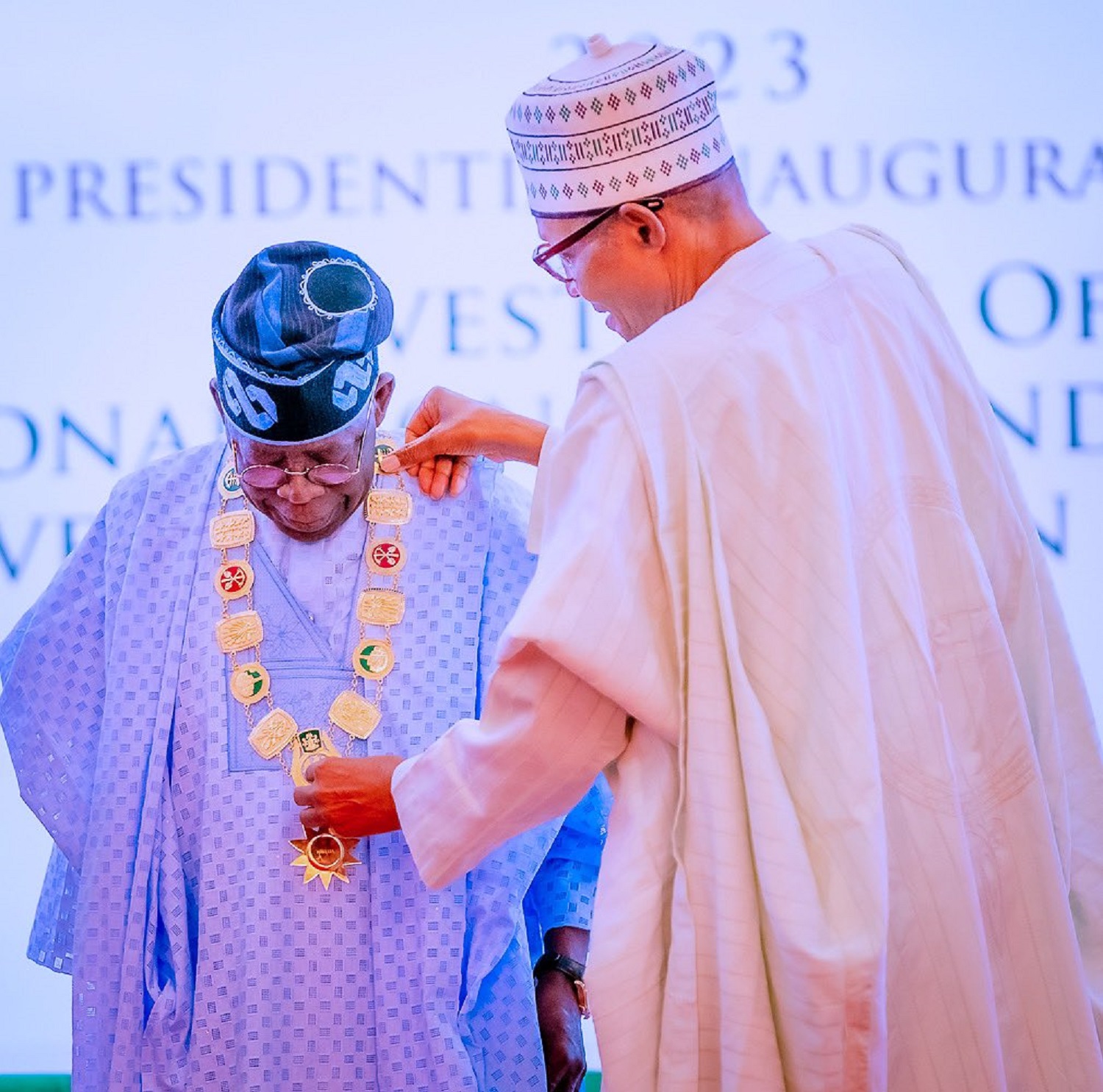President Tinubu has recalled all Nigeria’s Ambassadors.
Newsonline Nigeria reports that the Minister of Foreign Affairs, Ambassador Yusuf Tuggar, on Saturday said that President Bola Tinubu, had directed the recall of all ambassadors.
The minister, in a statement by his Special Adviser on Media, Al-Kashim Abdul-Kadir, said the directive applied to all career and non-career ambassadors, noting that the envoys were expected to return to the country by October 31, 2013.
This Nigeria News platform gathered that 41 non-career and 42 career ambassadors are expected to return to the country. Meanwhile, information on the website of the Ministry of Foreign Affairs indicated that Nigeria has a total of 109 Missions, 76 Embassies, 22 High Commissions, and 11 Consulates.
Former President Muhammadu Buhari had in January 2021 approved the posting of 95 ambassadors, comprising 43 career and 52 non-career. Prior to the approval, the Senate ratified their nomination in 2020.
On February 16, 2021, however, Buhari inducted the ambassadors, as he charged them to protect Nigerians in their respective countries and represent the country with dedication and pride. The former President also charged them to be guided by the nine priority areas guiding the country’s foreign policy, which include health, fight against corruption, transportation, security and education.
Newsonline Nigeria had reported that Nigeria’s High Commissioner to the United Kingdom, Ambassador Sarafa Tunji Isola, was recalled. But while clarifying the directive on Saturday, the minister said the action was not a witch-hunt and that it applied to all career and non-career ambassadors.
The statement noted, “Sequel to the enquiries on the letter recalling the Nigerian ambassador to the UK, the Minister of Foreign Affairs, Ambassador Yusuf Maitama Tuggar, has reaffirmed that all career ambassadors and non career ambassadors have been recalled on the instructions of President Bola Ahmed Tinubu.
“Ambassadors are representatives of the country, and they serve at the behest of the President and it’s his prerogative to send or recall them from any country.”
The statement noted that the ambassadors were expected to begin winding down their activities in their respective countries of deployment, and take formal leave of the host government within 60 days and to return to Nigeria by October 31, 2023 at the latest.
The minister, while thanking them for the service they rendered, said he looked forward to welcoming them to Abuja.
‘UN Reps exempted’
The Presidency on Saturday night said all the country’s United Nations Permanent Representatives in New York and Geneva were exempted from the recall.
A statement by the Special Adviser to the President on Media and Publicity, Ajuri Ngelale, said the exemption was as a result of the upcoming UN General Assembly holding later this month.
The statement added, “To this end, the President further directs that Nigeria’s United Nations Permanent Representatives in New York and Geneva be exempted from this total recall, in view of the upcoming United Nations General Assembly, holding later this month. By the directive of the President, the recall of the affected officers takes immediate effect.”
Buhari appointees’ fate
Meanwhile, indications have emerged that the President may nullify more of the last-minute appointments made by Buhari before he left office.
Sources familiar with the matter told our correspondent that plans were underway to replace some of the appointees appointed by the previous administration.
Though our correspondent could not get the total number of appointments to be nullified, the highly placed source noted that the move might affect the last-minute appointments by Buhari’s ministers and heads of agencies.
Before Buhari handed over to the incumbent President, Sunday PUNCH exclusively reported how the Buhari administration, towards its end, continued to approve appointments even until the morning of May 29, 2023 when Buhari handed over to Tinubu.
The source said, “Some of the last-minute appointments by some ex-ministers will be nullified. It will be gradual, so I can’t exactly tell you the number of those who will be affected. As you know, some of them were done in a hurry. The appointments are being reviewed. I can confirm that to you.”
The Special Adviser to the President on Media and Publicity, Ajuri Ngelale, didn’t respond to our correspondent’s enquiries on the matter as of the time of filing this report.
On May 11, for example, the former President approved the appointment of a retired Assistant Inspector General of Police, Garba Baba-Umar, as a Senior Security Adviser on International Police Cooperation and Counter-terrorism in the Office of the Minister of Police Affairs.
According to a statement by the presidency then, the appointment was made to enable “Umar to complete his nationally beneficial tenure as an executive member of the INTERPOL.”
The immediate past Minister of Environment, Muhammed Abdullahi, also announced the appointment of a new coordinator for the Hydrocarbon Pollution Remediation Project on May 2, less than a month to the end of the administration.
A month earlier, Buhari through the Minister of Health, Osagie Ehanire, appointed a new director for the Federal Neuropsychiatric Hospital, Enugu.
He also re-appointed the Chief Executive Officer of the National Lottery Trust Fund, Bello Maigari, and the Director-General of the National Agency for the Control of AIDS, Dr Gambo Aliyu, on March 24, while a new DG for the National Oil Spill Detection and Response Agency was appointed on March 21.
On May 23, the Buhari administration appointed 33 new directors in agencies under the Ministry of Aviation and Aerospace Management.
On May 25, Buhari appointed Garzali Abubakar as the Executive Secretary of the National Agricultural Development Fund.
On May 28, which was just a day to his handover of power, the former President approved the appointment of Sha’aban Sharada as the executive secretary of the National Commission for Almajiri and Out-of-School Children Education.
Already, some of Buhari’s last-minute appointees and long-serving appointees have been sacked by Tinubu.
For instance, Tinubu in June dissolved the boards of all federal government agencies, some of whom their members were recently approved by the Buhari’s administration.
On Friday, Tinubu removed Dr Bashir Gwandu, who was appointed by the Buhari administration as the Chief Executive Officer of the National Agency for Science and Engineering Infrastructure on May 19, 2023. He named Khalil Halilu as his replacement.






